Guest Author: Carole Cummings
Today, I’m excited to welcome the talented and witty fantasy author (who absolutely did not pay me to say lovely things about her…) Carole Cummings. Carole has a few (OK… more than a few…) words she wanted to share on the importance and intricacies of writing diversity. The floor is all yours, Carole!
WRITING DIVERSITY FOR (WHITE CIS HET) DUMMIES
Okay, the title’s a little… smartassy. I couldn’t resist. And it’s not entirely indicative of what I want to talk about. We don’t need another straight white girl’s take on diversity. Diverse communities don’t need me to snag their hashtags out from under them and tell them what they really mean and how they could get what they want if they would just be patient and ask politely. (Seriously, I mean—if a few centuries of asking politely wasn’t working for you, how patient would you be right now?)
I really just want to talk about why I think every author including diversity in their stories is important and why I wish they #1—would do it, and #2—would do it respectfully, which, granted, means different things to different people, and there’s no one way to go about any of it. So let’s start with one of my own fail—er, teaching moments.
I began a story once with a Native American protagonist. The details don’t matter, and I didn’t plan to spend much time on the character’s heritage or culture—those things were going to be incidental to the story. One of those “a hero who just happens to be ____ things.” Still, I researched the crap out of the tribe I’d chosen for this character. And I’m not talking “spent a few hours on Wikipedia.” I’m talking years and a good chunk of my research budget before I even opened a blank document.
But as I researched and read and inquired, I began to suspect that, at least in this case, I couldn’t really create this character without making Rowling’s mistake of trying to be inclusive, but, in fact, undermining the very culture I was trying to include. The history of the tribe I had chosen was too long, too rich, too nuanced, too deeply imbedded in its contemporary members that to not include it as part of the characterization was doing the character a disservice. I could base a character in that culture and then build a fantasy world around it, change enough that I was paying respectful homage to the culture without actually coopting or misrepresenting it. But this was a story that needed to be set in our contemporary world—everything else about the world was anchored in our reality except for the presence of magic—so just pulling the “it’s fiction!” card wasn’t going to cut it.
So I approached a friend, half of whose genes come from the Mohawk, someone who actually grew up in what he calls “Rez (Reservation) Life.” I was lucky I had someone I could go to, because the conclusion we ended up drawing together was that no, I wasn’t doing it right, I couldn’t do it right without years-long immersion, and if I tried, I might end up doing more harm than good.
Could I write the character in a way that would satisfy the majority of the readership, more or less “get away with” not getting it right, hand-wave a little bit of “it’s fantasy!” and only worry about the few Native Americans belonging to this particular tribe who might stumble across my story and conclude I’d done it badly? Probably. And you know, it probably wouldn’t have hurt me as an author. That whole “even bad publicity is good publicity” thing is actually true—I’ve seen it. But if I did that, if I wrote something I knew wasn’t right, or worse didn’t care how wrong I got it, what would be the point of including it in the first place?
So what does a white girl do? Just not write different cultures, different genders, different sexual orientations?
No, of course not.
“Write what you know” is the oldest rule in the How to Write book, but it doesn’t mean that if you’re a Catholic Puerto Rican woman from New York, you can only write about Catholic Puerto Rican women from New York. It means you have to connect with your subject, you have to know it back to front, you have to identify with it so closely it leaks out all over the story and ultimately onto the reader.
The fact that I was unable to grasp all the nuance of a particular culture for a very specific story purpose doesn’t mean I can’t do justice to another. It doesn’t even mean I can’t do justice to that particular culture under different circumstances. The fact that I’m not a guy doesn’t mean I can’t understand every single thought in the head of one of my male characters. The fact that I’m not gay doesn’t mean I can’t write two male protagonists who save the world and eventually end up walking off into the sunset holding hands.
So what does it mean?
To me, personally, it means I’d better be very aware of what those of the culture/gender/orientation I’m writing do and do not want in a character before I start typing. That I should know my subjects inside and out before pulling up a blank document, and then get to know them even better as I write.
For broader purposes, it means when someone says, “We need books with characters of color written by people of color,” I shouldn’t pipe in with, “Hey, #allauthorsmatter, I write characters of color too, y’know!” I should instead be prepared to take a step back and let #ownvoices take the lead. That doesn’t mean hopping off the Diversity Train altogether—it just means acknowledging the fact that I don’t have the background and experience to be the conductor. Respecting my subject doesn’t mean representing it.
I write speculative fiction. I’m supposed to push envelopes. That’s what speculative fiction does. It removes a problematic subject from its real-world environment, gives it a makeover and turns it into metaphor or allegory, then plops it down into a different world so it can be more objectively analyzed, dissected, sometimes even made less problematic. It does it at a fictional and philosophical distance so that perhaps a reader who is part of the real-world problem can learn their culpability gently and in a way that won’t make them balk and bare their teeth, but will instead make them think and explore and learn. It instills empathy, it forges connections, it has the power to put a reader in the place of a marginalized person and ask “Is this person really that different from you?”
Those bad guys invading Pandora, viewing the Na’vi as little more than animals and trying to shove aside Hometree so they can get at what they’ve decided is valuable beneath it? That’s us. Put any of Earth’s native peoples in the place of the Na’vi, and Colonel Quaritch is every white explorer/conqueror who walked in and took because he thought he had the right. I know you knew that, but you know what else? As good and beautiful and thought-provoking as that allegory was, you know what’s still problematic about Avatar? The fact that the Na’vi were apparently helpless against Colonel Quaritch and his big, bad machines until Jake came along and led them to victory. Rationalize that however you want, but at the end of the day, it’s still a White Savior story. It’s still Dances with Wolves in space. Imagine how much more impactful that story could have been if the protagonist had been Neytiri or Tsu’tey.
How are we not past that trope yet? How do we get past it?
Maybe by just… not writing it anymore. By writing diverse characters from different cultures and backgrounds and histories, and connecting with them, then treating them with the same respect and acceptance we would want to see given to a character that’s supposed to be representative of our own culture, whatever that might be. By not assuming or even insisting that readers can’t or won’t connect with a character unless that character looks like them and comes from a background like theirs. Because if we do our jobs well, if we approach it all with the respect and empathy necessary to forge a connection between character and reader, make the reader care… well. There’s the bulk of our job done well already.
As authors, we can, yes, write protagonists who are POC even if we’re not. We can write protagonists who are physically challenged, of a different sexuality, who struggle with mental issues, who struggle with emotional issues, who are poor, who are oppressed. We can do it—we can write something that speaks to one, speaks to many, we can write all the above. We can do it as half-assed as we want because that’s our right, because it’s fiction, because my world = my rules, and if we’re willing to accept the potential consequences, we’re not obligated to do it any other way. But if we want to do it well, if we want to help or even just not hurt, we need to find the Author-to-Character-to-Reader connection that will allow us to write our characters’ truths, even when those truths aren’t necessarily ours.
Include to the very best of our ability, but respect while we’re at it, and remember that we don’t represent. Inclusion isn’t about planting a flag in a culture and claiming it as our own regardless of what the members of that culture might want—it’s about respecting the culture, which means treading a line the citizens of that culture won’t find offensive. And yes, it would help if we figured out if we’re doing that before our story ever sees a submission queue.
But even when we do all that, we’re not going to please everyone. Because people are different, they have different earned opinions, and just because the majority of a culture might be happy with something we’ve done, it doesn’t mean there won’t still be backlash. It’s the chance we take. It goes with the job of being an author and putting our work out there to be scrutinized, enjoyed, hated, loved.
Which brings up the real question here—what is an author’s job when it comes right down to it? And if we don’t write with a social conscience, if we don’t try like hell to get it right, if we don’t include diverse characters/genders/etc., are we actually doing that job?
I submit that in the simplest, most basic terms, our job as authors is to write good stories featuring well-developed characters set in believable worlds, and to make sure those characters stay true to their worlds and circumstances and personalities so that how they feel/think/react rings true. That’s it.
As human beings, though?
I would argue it’s… maybe not our job but at least our place to include diverse people in our stories because to not do so is to do a disservice to a good portion of the population. It’s our place to think twice—three times, four—before we drag this world’s faults and prejudices into our fictional worlds like those faults and prejudices are normal and should be accepted as a matter of course. We should do these things because we believe color/sexuality/religion/disability/etc. should not be an excuse to discriminate. We should do them because not doing them makes us part of the problem. And we should do all that with the respect of knowing we’re guests in the culture we’re writing, and that a good guest doesn’t leave their host a big mess to clean up and wishing they’d never met anyone like us.
It’s not about claiming a hashtag and getting into search engines with the right keywords and boosting sales. It’s not about patting ourselves on the back. It’s about including a diverse cast because the world is made up of diverse people, which means, empirically speaking, other worlds probably would be, too.
For me, personally, it’s about putting my social politics where my metaphorical mouth is. It’s about this weird little Pollyanna hope that I’m setting some kind of small (okay, tiny) example and that if every author did it and did it conscientiously, diversity would somehow by osmosis become mundane, expected, something that would seep subconsciously into even the most bigoted brain, and the bigot it belonged to would just… stop.
I know, I know. It’s not that simple. Like I said, it’s totally Pollyanna wishful thinking.
But on the other hand, I’ve actually seen something like it happen on a smaller scale. I’ve seen homophobic women stumble across slash fanfiction and walk away allies. I’ve seen boys who’ve been taught girls are weak and useless become devotees of Katniss Everdeen. I’ve seen fanboys and fangirls who had meltdowns over Michael B. Jordan daring to play Johnny Storm and who then only a couple years later lined up more than once to watch him steal the Black Panther movie with his frank and nuanced performance as Killmonger.
Baby steps, yes. But steps. Not enough by a longshot, but that’s not a reason to not do it at all.
And look, we don’t know what we don’t know. We don’t realize how thick the biased lenses through which we view the world are until someone trots up and taps at them. Maybe we’ve written a character who was more cliché than cultural acknowledgment. Maybe we didn’t know something was an offensive stereotype before we painted our character with its dubious colors. Maybe we just didn’t know, and since we don’t know what we don’t know, we didn’t think to consider an alternative. We didn’t think to ask.
Know how I figured out I assumed race? By Stephen King treating a character of color as an unremarkably equal cast member in IT. I read that book when I was about… eh, thirteen or so, and I had no idea Mike Hanlon was African American until Henry Bowers called him the n-word a good way into the story. I’d been assuming the entire cast of characters was white because I am. I realized my own gender bias and misconceptions about sexuality when Ursula K. Le Guin very gently rubbed my nose in them in The Left Hand of Darkness.
I’m sure I have other biases I don’t know about yet because I haven’t yet been confronted with them. And we don’t know what we don’t know. Even when we try, we miss things. We’re human. I don’t think Rowling—a nice, well-intentioned, liberal English lady—had any idea how disrespectful she was being to the Native American community in general, and the Navajo community in particular, when she included a skinwalker legend in her universe. But she could have avoided the controversy that erupted, she could have avoided hurting some of her fans, simply by asking a question of someone who would know. And isn’t part of inclusion not hurting the community we’re including?
I wrote this essay by committee. I had eleven very kind people from different backgrounds, cultures, orientations, and genders read this thing and give me input because more than anything I didn’t want to come across as condescending or insulting or hurtful. And even after all that, I probably still got something wrong. I have no doubt I’ll find out what once it goes public. (Yikes!) But, you know… I tried. I tried really hard. And if I got something wrong, I’ll try to do better next time.
Because yes, I’m human, I’m fallible. We all are. We can be dummies sometimes without even realizing it.
But we’re also learning and evolving, every day, and that’s kind of what we, as human beings, are for. It’s what makes it so much fun to write about us. It’s what makes us interesting. Really, the more diverse we are, the more interesting we get.
And what author doesn’t want to write something interesting?
About Carole:
Carole lives with her husband and family in Pennsylvania, USA, where she spends her time trying to find time to write. Recipient of various amateur and professional writing awards, several of her short stories have been translated into Spanish, German, Chinese and Polish.
Author of the Aisling and Wolf’s-own series, Carole is currently in the process of developing several other works, including more short stories than anyone will ever want to read, and novels that turn into series when she’s not looking.
Carole is an avid reader of just about anything that’s written well and has good characters. She is a lifelong writer of the ‘movies’ that run constantly in her head. Surprisingly, she does manage sleep in there somewhere, and though she is rumored to live on coffee and Pixy Stix™, no one has as yet suggested she might be more comfortable in a padded room.
…Well. Not to her face.
Where to find Carole:
Website | Dreamspinner Press | DSP Publications | Amazon | Barnes & Noble| Email| Facebook | Twitter | Blog


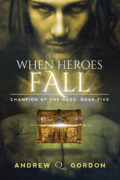
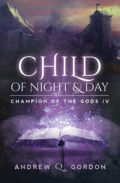
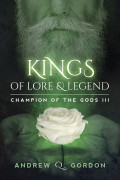
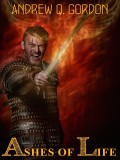
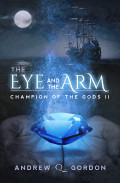
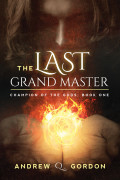


Well done and well worth the wait for you to finally publish it. (((hugs))) – Baz
Thanks, Baz. For way more than the comment. <3